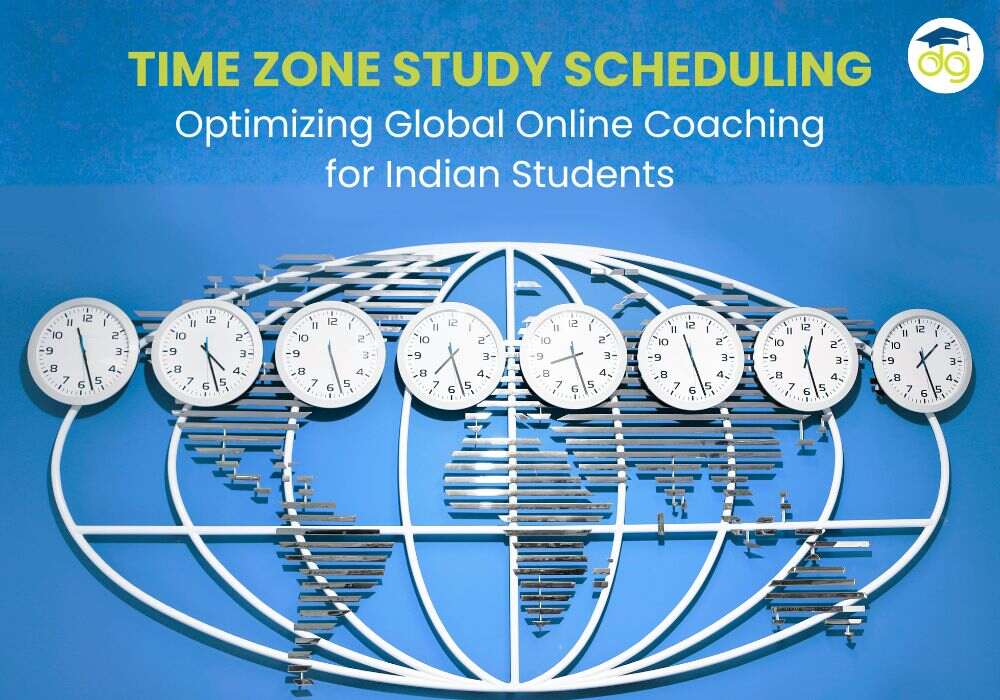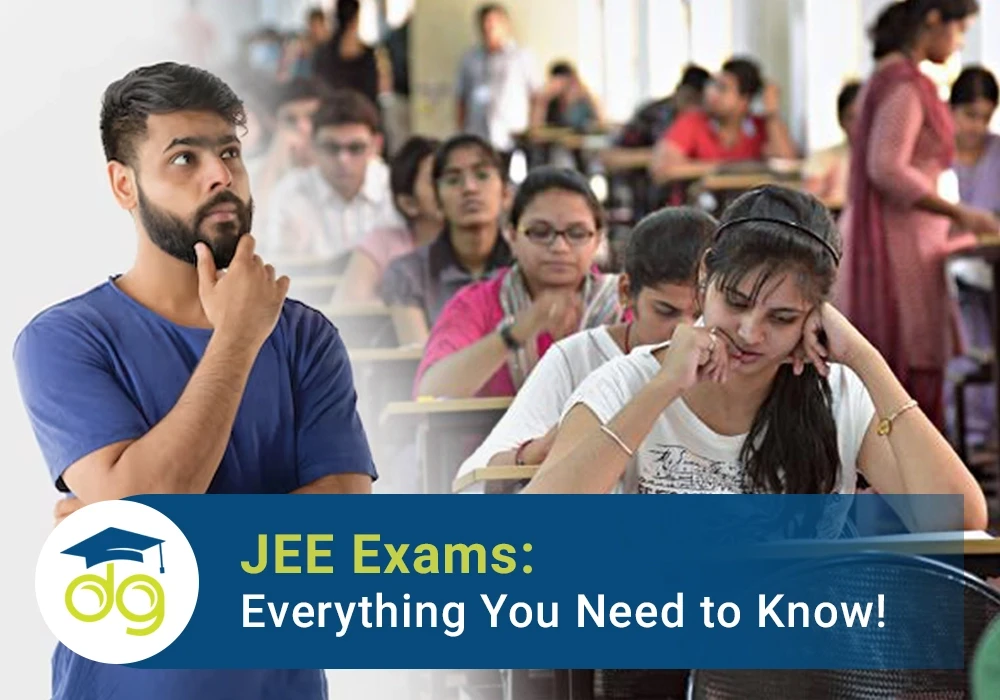JEE Exams: Everything You Need to Know!
Overview of JEE Main and Advanced Exams, Eligibility, and Preparation Tips
The Joint Entrance Examination (JEE) is an engineering entrance assessment conducted for admission to various engineering colleges in India.
It is constituted by two different examinations: the JEE-Main and the JEE-Advanced, the two major competitive entrance examinations in India. Joint Seat Allocation Authority (JoSAA) organizes joint counseling admittance process for 23 Indian Institutes of Technology (IIT), 31 National Institutes of Technology (NIT), 25 campuses of the Indian Institutes of Information Technology (IIIT), and other Government Funded Technical Institutes(GFTIs) based on JEE Main or JEE Advanced ranking depending upon the college of engineering.
In this blog we will be getting down to the Main and Advanced stages, giving a thorough insight into the requirements and, more importantly, the structure and significance of the entrance examination.
Understanding JEE Exam:
A JEE is a Wide-Ranging Joint Entrance Examination, which will be familiarized as the most happening engineering examination in the country-India.
JEE is an exam process in India, it prepares the mindset of the students who wish to do engineering in the universities of India. JEE is said to be the toughest test in India and is referred to as the reason why a particular student secures a place in any college or university in the country.
Besides the fact that many colleges, stably put in the nation, conduct their admission procedures with the help of JEE scores.
Understanding JEE Main Eligibility Criteria
JEE (Main), conducted by the National Testing Agency NTA, is the first step in the JEE test series. It works as a gateway to different engg colleges including NITs, IIITs, and other CFTIs etc.
For going for BTech courses, the candidate has to sit for JEE (Main), while for BArch/BPlanning, Paper 2 is mandatory. Importantly, there are no age restrictions for JEE (Main) applicants – individuals of any age who have completed Class 12 are eligible to apply.
For state codes, it is linked to where you completed your Class 12 (or equivalent) examination, and not necessarily where you currently reside. For example, if you took your exams in New Delhi but reside in Noida, Uttar Pradesh, your eligibility code would represent New Delhi, not Uttar Pradesh.
Candidates can qualify for JEE Main through various recognized exams, including the 10+2 Examination System, Pre-University Exams, NDA Course, and National Diploma Examination.
JEE Main Exam Format: An Overview
The JEE (Main) test has 90 questions about Physics, Chemistry, and Mathematics.
There are 20 multiple-choice questions and about 10 numerical value questions.
The exam is worth 300 marks and usually takes around 90 minutes, but the time may change.
Eligibility Requirements for JEE Advanced Examination:
A candidate should have achieved remarkable scores in JEE Main Exam to enable them to qualify for JEE Advanced exam. From the 2.23 million candidates of JEE main paper 1 only qualifies a total of 250,000 irrespective of the category to advance for the JEE advanced exam.
Admission into this stage of the JEE is determined by an official cut-off list based on the scores obtained in the JEE (Main).
Candidates are allowed a maximum of two attempts to take the JEE (Advanced). Additionally, individuals admitted to any IIT program through the JEE (Advanced) are not permitted to reappear for the exam.
JEE Advanced Exam Format: An Overview
The JEE Main examination takes place in a computer-based mode with two papers. Paper 1 and paper 2 will cover Physics, Chemistry, and Mathematics.
While paper 1 evaluates candidates with Physics, Chemistry, and Mathematics, Paper 2 has a varying marking scheme that awards full, partial, or zero marks on subjects.
Preparation Is Key for Success on the JEE Exam:
Gateway to Top Engineering Colleges:
The JEE Exams (Main and Advanced) tests act as gateways to get admission in the country’s prestigious engineering colleges including the IITs, NITs, and IIITs etc.
The clarity within the Joint Entrance Examination Main (JEE Main) opens the way for admissions to most of the best universities in India since many of those institutions generally set JEE scores as one way among the standards for admission.
Career advancement opportunities
Graduating from top engineering colleges like IITs can lead to amazing job opportunities not just in India but also abroad. Companies really want to hire IITians because they're seen as super valuable, and they offer them cool jobs with great pay.
A great score in JEE can open up doors to lots of different career paths like engineering, research, starting your own business, or teaching. JEE lets you pick the career that matches what you love and what you're good at.
Personal Growth and Development:
Dedicating oneself to relentless preparation for JEE not only enhances analytical and time management skills but also equips students for the challenges of higher education and professional life.
Cut - throat Competition:
It is outstanding that the JEE Exam is renowned for its intense competition, as millions of contenders are eyeing limited seats due to the intense competitiveness.
Such a competition, which requires the constant readiness for action while, at the same time, pitting you against other intelligent people, presents students with a huge challenge – a challenge that inevitably makes them achieve their best.
Preparing for JEE demands not just academic knowledge but also mental fortitude and unwavering determination from participants. Students learn to effectively manage stress, alleviate anxiety, and stay focused during the rigorous JEE exams.
Nation-Wide Recognition:
JEE is an examination that tests students from around the country. Success on this examination gives participants national recognition; toppers become role models who serve to motivate others.
Conclusion:
Even though the JEE exam might seem tough, with some careful preparation and really getting to know how it works, you can tackle it confidently.
This blog has everything you need for a great JEE journey – from figuring out if you're eligible to understanding why it's so important. It's all about putting in the effort, thinking smart, and working hard to make it happen.
For the rest of the details, all you have to do is head over to Skoodos Bridge for inquiries and information pertaining to coaching institutes, including fee structures, details, and more.
Categories
Archives
Similar Posts

Gamification Psychology: Transforming Exam Preparation into Play
by Skoodos Bridge

Parent Communication Strategies for Managing Exam Family Pressure
by Skoodos Bridge

Time Zone Study Scheduling for Indian Students in Global Coaching
by Skoodos Bridge

Budget Breakdown: Cost Analysis of Top JEE Coaching Institutes 2025
by Skoodos Bridge

Color Psychology in Note-Taking for Better Memory and Learning
by Skoodos Bridge

Mirror Neurons and Group Study: The Psychology Behind Collaborative Learning
by Skoodos Bridge

Music Therapy for Concentration: Playlists to Boost Focus While Studying
by Skoodos Bridge

Dopamine Hacking for Study Motivation: Neuroscience-Based Exam Prep
by Skoodos Bridge

Electric Vehicle Jobs: Top Mechanical Engineering Careers in EV Sector
by Skoodos Bridge


Leave a Comment